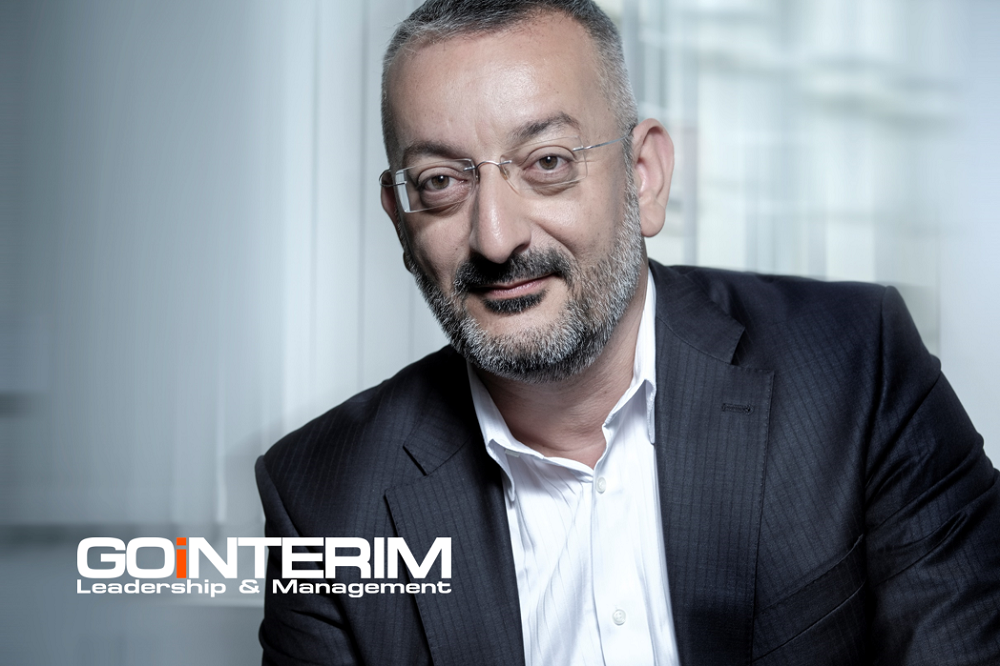
Nomination for Interim Manager of the Year 2022 | AIMP Nomination for GOiNTERIM Manager Bodo Antonic
Since 2011, the AIMP has been awarding the title “Interim Manager of the Year” for outstanding achievements in interim management, an award with great appeal in, but above all also outside the industry. Even the nomination is valuable, interim managers benefit from it and often maintain a trusting and friendly relationship with “their” providers.
This year we nominated Mr. Bodo Antonic, who was also nominated for Interim Manager of the Year. Congratulations! We would like to introduce it briefly here.
Mr. Antonic, why did you become an interim manager and how long have you been doing so?
In 2004, a friend told me about one of his assignments as an interim manager. Until then, I did not know the expression at all. Since my jobs were quite identical in terms of structure, I made an effort to contact one or another AIMP provider. In 2005 came the first order and since then I do nothing else. But that answers your question in part. But the real why has yet to be answered. I like being a temporary manager. This “job” sums up everything I like to be and how I like to be. Company in turbulent to difficult phases, decision-maker and yet my own boss.
What specific project did you come up with here, can you describe it briefly?
It was ostensibly one of my “typical” sales optimization projects in the life science sector that I implemented with GOiNTERIM. The mission, put bluntly: “Increase sales!”. And it came as it always did: The real reason for the misery was something completely different. Structure, leadership, governance. It’s almost always the same triad and so it is here. Companies not infrequently end up in crisis because the necessary decisions are not made and implemented.
Can you also show us the customer benefit, what was the success with the customer?
Ultimately, there were two key findings. For one thing: Sales increased – and that despite Corona. We hybridized sales and were able to leverage contactless time for the business and sales, and we did it better than the competition.
But the second approach was perhaps even more important. I was able to point out the structural and leadership deficits to the board. This enabled the Board of Management to make the necessary decisions. It took a bit of pressure to convince the board, but in the end I was able to convince them to change central processes and people.
Mr. Antonic, how would you describe your leadership style, what is important to you?
My mother raised me according to two or three very few principles, and I apply them. Principle 1 can perhaps be described as follows: “Be facing!”. Companies are not soulless entities, but places where people come together for 8-12 hours a day. This means that leadership always means valuing people at the same time. I experience time and again that people virtually blossom when you turn to them, when they understand that you see them, perceive them and value them.
“Be honest and direct!“. I avoid flourishes in business, sometimes I am downright undiplomatic. When someone screws up, they get told, when they’ve done great things, they get told. Directly and not infrequently immediately. Everyone in the company serves one goal, namely the survival of the company. Those who contribute are told so, those who harm survival are given the opportunity to reconsider and change their behavior.
“Be consistent!“. In a crisis – and I do nothing but accompany companies in crises – I have to communicate quickly and directly, and for that I need trust. Trust in me as a person who will pull the company (“The Cart”) out of the mud. For this I need trust and that, although people do not know me at the beginning. Therefore, I must do everything so that people will trust me. And that means that you have to communicate clearly and openly and without embellishments, so that everyone understands you – and then you have to consistently follow up your words with actions.
How do you proceed in the mandates? Do you have any special methods here, what is important in practice from your experience?
Actually, no. In the beginning, I walk around the company, talk to as many as possible, ask questions, questions, questions. In plain German: close your mouth, open your ears and eyes. Then quickly comes something like hypothesizing, in good German: I quickly try to recognize patterns to which I know the appropriate heuristic. “The misery is due to xyz.” This hypothesis will be tested. And then, perhaps, comes the unusual. Many managers react with control reflexes in crises. It’s different for me. I set myself very few goals, but I set them very consistently. I let the rest go, just as I generally exercise much less control. I trust my employees. They need a clearly communicated goal, they are adults, they know how to get where I pointed them.
How do you work with us or with providers in general? What is specifically important to you?
Firstly, it should be said that I get almost 100% of my orders through providers. This has been a successful cooperation for both sides for 17 years now. Otherwise, I believe I can give the same answer to one of the aforementioned questions. The collaboration is clear, open, direct, no frills. If the provider and I are a good match, then we’re pulling in the same direction. Save companies, save jobs, make customers happy.
Thank you very much for your explanations! We are looking forward to further cooperation and close and open contact.
